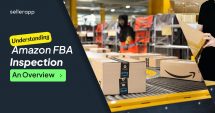Alibaba vs Aliexpress: Which one is best for you?

The Alibaba vs. AliExpress comparison demonstrates how these two potent platforms have contributed significantly to the success of numerous e-commerce companies worldwide.
It’s critical to comprehend the main distinctions between Alibaba and AliExpress, particularly if you’re new to e-commerce or intend to expand your company by working with foreign suppliers.
Alibaba is the ideal platform for businesses looking to manufacture goods or make bulk purchases at discounted prices because it was founded primarily for business-to-business (B2B) transactions and bulk buying.
AliExpress is a well-liked marketplace for small retailers and dropshippers who want to test products without making significant financial commitments. Even smaller, business-to-customer (B2C) orders with no minimum quantity requirements are their focus.
In this article, we will examine the fundamental differences between the two parent businesses, explore how dropshipping works, and provide guidance on selecting the platform that best suits your needs.
What is Alibaba?
If you intend to expand your business into new markets or add more items to your lineup, it may be challenging to find products at competitive prices.
Complex supply chains, rising production costs, and unreliable suppliers usually hinder growth and make it harder to stay competitive. Alibaba can help with that.
Alibaba was established by Jack Ma in 1999 and has since developed into the top B2B (Business to Business) wholesale sourcing platform in the world, linking companies with vetted suppliers and manufacturers across the globe.
Alibaba offers a gateway to reliable, large-scale purchasing with millions of products in over 40 categories, including consumer electronics, fashion, industrial equipment, and packaging materials.

Alibaba gives you the global access and infrastructure you need to scale with confidence, whether you’re expanding into foreign markets or streamlining your sourcing process.
For instance, in its early years, the international fitness clothing company Gymshark was able to source personalised sportswear at reasonable prices through Alibaba while focusing on growing its influencer network and social media presence.
This enabled them to swiftly test and scale goods. Gymshark is now a billion-pound brand with millions of clients worldwide, having grown from a modest business by using Alibaba’s manufacturing network.
What is AliExpress?

If you are a business owner having trouble finding a platform that allows for small-scale transactions without compromising product diversity or cost, AliExpress is the answer. Started in 2010 as a B2C (Business to Consumer) extension of Alibaba, AliExpress allows customers to purchase their desired goods directly from retailers and wholesalers across the globe.
AliExpress is an ideal match for small-scale retail enterprises and dropshipping since it serves customers who wish to buy affordable individual items, in contrast to how Alibaba focuses on a wholesale marketplace. With its huge availability in product selection, which includes anything from home appliances to apparel and cosmetics, the platform helps businesses simplify customer satisfaction by offering safe payment methods and quick delivery.
For instance, Shein, one of the world’s fastest-growing online fashion shops, first used sites like AliExpress to get stylish yet affordable clothing. Shein quickly grew its inventory by using AliExpress’s extensive product selection and reasonable prices. Shein is a major force in the fast fashion industry today, demonstrating how AliExpress can help companies that want to sell directly to customers and have a rapid inventory transformation.
Key differences between Alibaba and AliExpress
An analysis of the key differences between Alibaba vs AliExpress will help you quickly select the platform that is best for your business. Understanding the core Alibaba vs AliExpress difference can clarify which suits your sourcing model, whether it’s bulk manufacturing or low-risk product testing.

Alibaba vs Aliexpress: Which one is best for your eCommerce business?
Now that you have found your eCommerce niche, you need to identify which platform will work the best for you. Both platforms serve different purposes. The Alibaba vs Aliexpress comparison is here:
If you are planning to start with Alibaba, you have to understand your product in the first place. If you’ve grown beyond a side hustle and have established a company, it is beneficial if you choose Alibaba. Especially if you’re looking at bulk orders.
Alibaba is specifically designed for mass production businesses and can help you with private labelling of your products and negotiating the prices for bulk orders.
If you are an individual buyer and looking for products in small batches, AliExpress works best for you. It does not have the requirement of a minimum order quantity. For instance, think of how Amazon works.
If you want to buy a specific product, you search the category and you have direct access to the product. It also gives you an estimated delivery time. It works similarly to how Amazon does.
| Factor | Alibaba | AliExpress |
|---|---|---|
| Target Buyer | B2B, bulk buyers | B2C, individual buyers |
| MOQ | Medium to high | Low to none |
| Customization | Provides Customization | Limited or none |
| Logistics | Uses Freight shipping | International courier |
| Shipping | 15–45 days | 7–21 days |
| Ideal Use | Scaling, brand-building, and long-term sourcing | Testing, seasonal/viral products, D2C dropshipping |
| Risk Profile | Requires vetting, factory audits | Faster, but less control |
Alibaba vs AliExpress: Benefits and Drawbacks
There is no single solution when it comes to selecting between Alibaba and AliExpress. It depends on your long-term objectives, budget, and business strategy; each platform has its benefits and possible drawbacks. For you to make the right decision about which platform is best for your e-commerce business, let’s examine what each one has to offer in the Alibaba vs Aliexpress breakdown.
Alibaba – Benefits:
Alibaba is a leading B2B (Business to Business) and bulk shopping alternative to Amazon, offering customers direct access to a vast supplier database, technology and tools, and customizable options ideal for growing enterprises or obtaining goods at wholesale pricing.
Vast supplier database
Alibaba welcomes millions and billions of suppliers from all around the world, offering a wide range of products and services. Their vast supplier base allows them to explore and compare while finding the right supplier for their products.
Customization and personalization
They offer product customization solutions. You can request your specific requirements to the sellers, whether it is negotiating the price or private labelling. This versatility helps the shoppers to align purchases with their requirements.
For instance, Fashion Nova, a well-known fast-fashion brand, used Alibaba to personalize apparel goods such as dresses and sportswear. They had teamed up with producers to choose specific textiles, produce unique patterns, and attach branded labels and packaging.
Strong finances
Alibaba can generate high profit margins. They target manufacturers and suppliers that buy orders in bulk. The manufacturer does not rely on one source for income, as it includes multiple divisions such as eCommerce, logistics, and financial technology.
Technology and tools
Alibaba has been using the same strategy as Amazon by making use of technology to grow and expand. They expanded their reach by introducing new ventures across e-commerce, internet services, fintech, and more.
Alibaba- Drawbacks:
Alibaba provides big alternatives and low rates, but it also has drawbacks, such as longer shipping periods, problems with quality control, and less consumer protection, particularly for smaller or first-time customers.
Language barrier
It can be challenging to deal with suppliers from different sociocultural backgrounds, especially while negotiating prices or solving issues related to the product. There are possibilities of miscommunications if there is a delay in shipping or dissatisfaction with the final product.
Competition
Platforms like Amazon are direct competitors with Alibaba. If you are thinking of investing in Alibaba, you are ultimately putting yourself at speculating that the company will hold its stake in the e-commerce marketplace.
Long shipping times and high shipping costs
The shipping time and the high shipping cost can be frustrating for the buyers, as most of the sellers are based offshore. Most of them would ship their products from China. Even though most of the sellers have partnered with international couriers, there is a possibility chances in delays in receiving orders.
Possible scams and frauds
Online transactions on Alibaba can put buyers at risk due to the hidden identity of the sellers. Sellers might fake their identity, exaggerate their products, or even disappear after the payment, leaving the buyers vulnerable and at potential financial loss.
AliExpress – Benefits:
For individual consumers, AliExpress is a cost-effective substitute for Amazon, providing a diverse range of products frequently with free or inexpensive worldwide delivery and no minimum order requirements.
Easy to use
AliExpress is a platform where buyers can directly access their desired products. AliExpress is easy to use and beginner-friendly.
Fast setup for Dropshipping
Dropshipping is a perfect source for a beginner to start with. Interestingly, AliExpress offers free dropshipping, unlike the other marketplaces, which may charge a monthly or yearly fee. The requirements are minimal, and you don’t need to have much experience.
When comparing Alibaba vs AliExpress for dropshipping, AliExpress clearly stands out for ease of entry, especially for those just starting out with low upfront investment.
No minimum orders
Unlike the wholesale marketplace, AliExpress does not require MOQs (minimum order quantities); a buyer can purchase as few as one product at a time from the same supplier. It works well for buyers looking for selective options such as clothing, electronics, home decor, and many more.
Affordable inventory
If your concern is not quality and you want products at minimum rates, you will love the category. AliExpress for their pricing and selection of goods available. You will notice a vast difference between other marketplaces and AliExpress for their rock-bottom prices in every category
Aliexpress- Drawbacks:
Some of AliExpress’s drawbacks include frequent delays in shipping, fluctuating product quality, and unreliable sellers, which can make it less suitable for urgent or critical purchases.
Refund and exchange
Most of the customers faced relatively minor consequences with the refund and exchange. The shipping consumes most of the time, so do the returns. The customer support is not that great either. If you are willing to talk to a representative, there is a possibility that you won’t be able to reach out to them. It may take approximately the same time to return as it took for delivery.
Shipping
Coming to the shipping part, it takes an extreme amount of time to ship orders. An easy estimate would be, it takes approximately from two weeks to one month to deliver the products. But some suppliers offer fast delivery through FedEx, but these options are a bit expensive.
Compromising on quality
You can’t expect top-notch quality with AliExpress products. The price range is minimal, so there is a high possibility that the sellers have
compromised on the quality.
Mutable sellers
Not all the sellers can be guaranteed as genuine. Some may overvalue their products and set higher expectations to attract more buyers. Moreover, they can change the name of the brand store, product listings, or even their trade practices. This becomes a concern for the buyer, bringing in negative reviews to the platform.
Can I use Alibaba for dropshipping?
More than Alibaba, Aliexpress is more suitable for beginners in dropshipping. It blends with dropshipping tools such as DSers, which is helpful for small business owners. Additionally, AliExpress also has its dropshipping programme called ‘Alidropship’

In the context of Alibaba vs Aliexpress dropshipping, if you are just about to start, consider the tool as a great option, as it is beginner-friendly and affordable. However, it has a one-time fee and a simple setup, which makes it straightforward to use.
To start your journey, you need to pick a niche, something that is specific and in high demand, such as home exercise equipment, pet supplies, or phone accessories. The next step is you create an online store with the help of tools like Wix, WooCommerce, or Shopify. Dropshipping systems like DSers will let you import products from AliExpress straight into your store and streamline the order process.
When comparing Alibaba vs Aliexpress dropshipping, Aliexpress is often the go-to for beginners because of its no minimum order policy, while Alibaba tends to be suited for bulk deals and private labelling.
It is not easy to find reliable AliExpress vendors. Try to look for companies with rapid shipping options like Cainiao or AliExpress Standard Shipping, steady order quantities, good ratings, and positive reviews. You can display high-quality products on your store when you have found them, making the product titles, descriptions, and images more appealing and professional.
Many entrepreneurs who explore Alibaba vs AliExpress dropshipping eventually scale from one platform to the other, depending on how their business evolves, starting lean with AliExpress and moving to Alibaba as volume grows.
Otto, from the Baltic states, achieved $13,087 in 30 days across four AliDropship stores, enabling him to quit his traditional job and become self-employed within just a few months of going live.
Is AliExpress safe to buy from?
Online scams should be avoided when making purchases. Building trust can be challenging in any online marketplace, but it can be especially challenging on sites like AliExpress, where a high number of sellers and relatively low prices may cause people to doubt the legitimacy and quality of the products. To avoid fraud and ensure reliable fulfilment, businesses sourcing inventory or experimenting with dropshipping models must be committed.
This issue is made even more pertinent in the Alibaba vs. Aliexpress debate because the platforms differ in how they handle product sourcing and seller standards.
Looking closely at customer reviews is one of the easiest and best ways to confirm a seller’s legitimacy. Take special note of the star ratings, thorough remarks from confirmed customers, and photo reviews. More reliable and seasoned sellers are usually those who have been using the site for three years or longer, have a large following, and have a solid track record.
It is best to look for products that provide free and simple returns to reduce risk; this provides extra customer security. Additionally, the Buyer Protection Program by AliExpress has helped settle disputes and provide refunds for non-delivered or misinterpreted products. This is making the site safe for consumers across the world.
At last, be aware of branded products that are sold at cheap prices, especially those labelled by well-known companies like Apple or Samsung. To ensure authenticity, warranty coverage, and product dependability in such situations, it is best to buy straight from the brand’s official site or approved sellers.
Are products on Alibaba and AliExpress genuine?
Both Alibaba and AliExpress, the parent company of the Alibaba group, have marked their establishment in the global e-commerce marketplace. Although Alibaba and AliExpress serve different markets, Alibaba for Business-to-Business (B2B) wholesale transactions and AliExpress for Business-to-Consumer(B2C), both companies want their shoppers to be cautious and do their possible research before selecting merchants.
The Alibaba vs Aliexpress debate often comes up when comparing product authenticity and supplier reliability.
The risks are considerably higher on Alibaba because buyers usually place large or customized orders. There is a lot of potential for profit because the platform is designed with manufacturers, distributors, and factories in mind, but there is also more danger if you aren’t working with verified suppliers.
Although Alibaba provides resources such as Trade Assurance, “Verified Supplier” badges, and on-platform audits, it is still essential to go through customer feedback, ask for samples, do factory visits, and negotiate the contract terms while placing an order.
On AliExpress, it changes a little. The dynamics are different on AliExpress. This B2C platform is well-liked for dropshipping and low-risk product testing because it enables customers to make a single purchase at a low cost. However, because it’s an open market, low-cost knockoffs of luxury brands are frequently found, especially in the fashion, electronics, and cosmetics sectors.
When comparing Alibaba and AliExpress, it’s important to keep in mind that although both platforms present opportunities, they also require consumers to exercise caution, particularly when it comes to confirming the legitimacy of branded products.
All sellers may not be the same; the quality of the product and consistency can differ. This is why it is critical to sort listings by highest reviews, examine photos uploaded by the customers for reviews, and look for sellers with long histories and high ratings.
In both cases, the best safeguard is proactive research:
On Alibaba, look for Trade Assurance, filter for Gold Suppliers, and request a sample order before placing orders in large volumes.
On AliExpress, avoid deals that are too good to be true, and prioritize products with thousands of orders and detailed positive reviews.
For both platforms, avoid unofficial listings for globally recognized brands like Apple, Samsung, or Nike, as these are often counterfeit or poorly made dupes.
Verify suppliers on Alibaba.
Alibaba provides a membership badge to its suppliers, so once the supplier gets verified on the platform, they will have a verified tag on their profile. It is visible to the buyers through search results, product pages, and company profiles. In the broader Alibaba vs AliExpress context, this verification system plays a critical role, especially since Alibaba deals mostly with bulk and custom orders.

Moreover, you can also check the seller’s reputation through their email and website. It is more reliable when a seller has 3+ years of experience and a visible export in the U.S. or Europe. Also, check the communication reliability and order sample products to test them out.
Also, Alibaba offers an AI tool named Accio that enables side-by-side comparisons of suppliers and products. It can display costs, minimum order quantities, and even typical shipping durations among suppliers. Works as a huge time saver.
Conclusion
If you are planning to establish a product brand with a long-term association with suppliers, Alibaba is your right choice. However, if you are looking for product ideas or dropshipping markets, AliExpress is the practical option for you. The alibaba vs aliexpress decision ultimately depends on your business goals, sourcing needs and how you are planning to scale your ecommerce business.
Now that you have an idea of which platform to choose, to truly accomplish it, you need a strategy backed by insights and data.
Whether you want to experiment with product ideas through AliExpress or move into bulk sourcing on Alibaba, SellerApp helps bring clarity to the chaos. With insights into your sales, ad performance, and inventory trends, our tools transform scattered data into a focused strategy, so you can grow with more confidence and less guesswork.
Additional Reads:
Buy from China and sell on Amazon











Jeffrey Lug
July 23, 2025Perfect guide for entrepreneurs exploring product sourcing options.
Larry Mip
July 24, 2025Nice summary of how each platform serves a different stage of e-commerce growth.
James Weido
July 24, 2025Great comparison, this really highlights the key differences between Alibaba and AliExpress for sellers!
James Daniel
July 29, 2025This comparison makes it easier to pick the right platform for my business model.
AliExpress Couponcode
August 10, 2025Great post, really helps understand when to choose Alibaba vs. AliExpress.
Alda Josly
August 19, 2025Great insights, Alibaba for wholesalers, AliExpress for small buyers makes total sense
Margie Crain
August 19, 2025Helpful guide for new sellers confused between Alibaba and AliExpress.